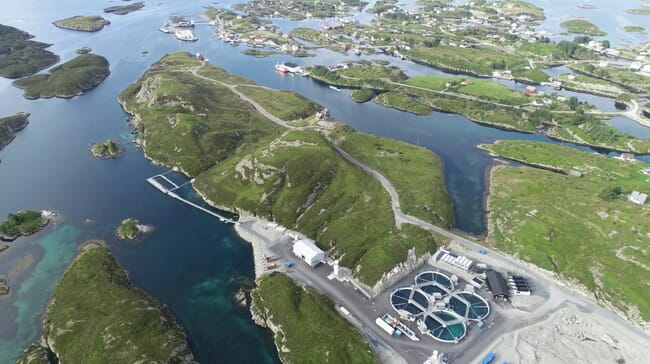
The pilot has proved successful enough to persuade Bue to scale up incrementally to 50,000 tonnes at a new, larger site
Bue Salmon already has a licence for 5,500 tonnes of production in Bulandet – a pilot facility comprising four circular, flow-through tanks. With the new licence – at Lutelandet – the company says it is now “positioned to take a leading role in the development and operation of land-based aquaculture”.
“This is a significant day for us at Bue. We are grateful for the constructive dialogue we have had with authorities, partners, and relevant experts during the application process,” said Knut Eikeland, CEO of Bue Salmon, in a press release.
“50,000 tonnes is a very large volume. However, the most important thing for us is to scale up safely while ensuring that neither space nor licensing becomes a limitation. We have already started a pilot project in Bulandet producing around 1,000 tonnes annually. It has been operational for nearly three years with great results. This shows that we are ready to take the next steps,” he added.
In its decision, the Vestland County Governor, who granted the new licence, emphasised: “The aquaculture industry produces seafood and creates jobs and value for Norway. From an environmental perspective, land-based aquaculture has several advantages compared to sea-based operations. The treatment of wastewater reduces the environmental footprint per tonne of fish produced, particularly in terms of seabed impact on recipient ecosystems. Land-based production also has lower emissions of plastic, antifouling agents, and medications for sea lice than open sea facilities. Furthermore, this production method can reduce issues related to sea lice, thereby minimizing its impact on wild fish.”
The licence requires Bue Salmon to ensure both fish welfare and environmental sustainability. The first construction phase is currently planned with a production capacity of 12,600 tonnes.
“The licence we have been granted demonstrates the significant scale that can be achieved through land-based aquaculture, provided we successfully manage the factors that affect fish health, welfare, and the environmental impact of production,” Eikeland concluded.


